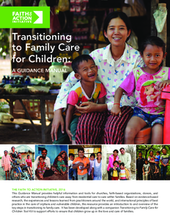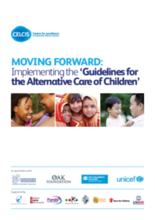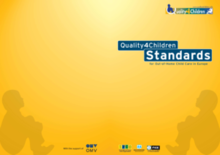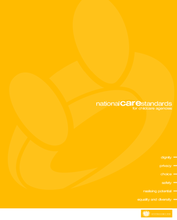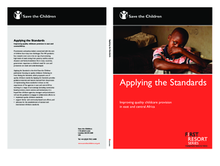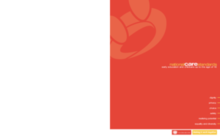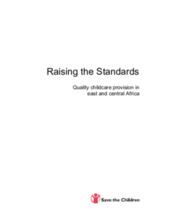This section provides tools for implementing and assessing standards for the delivery and administration of services, staff, and care across a range of care settings.
Displaying 1 - 9 of 9
This document is an adapted presentation created by Florence Martin of Better Care Network and Katie Rice of Save the Children UK describing the Tracking Progress Initiative.
Transitioning to Family Care for Children: A Guidance Manual aims to provide practical guidance and tools for churches, faith-based organizations, donors, and others who are transitioning care for children away from residential care to care within families.
The Transitioning to Family Care for Children Tool Kit is an online resource developed by the Faith to Action Initiative for churches, faith-based organizations, donors, and others seeking to transition their care and support of children away from a residential model of care (e.g., institutions, orphanages, children’s homes, group homes) to care within families.
This handbook, Moving Forward: Implementation of the ‘Guidelines for the Alternative Care of Children,’ is aimed at legislators, policy-makers and decision-makers, as well as professionals and care providers, to support the implementation of the Guidelines for the Alternative Care of Children, endorsed by the United Nations General Assembly in 2009. It explains the key thrusts of the Guidelines, outlines the kind of policy responses required, and describes ‘promising’ examples of efforts already made to apply them in diverse communities, countries, regions and cultures.
A set of standards on the process of a child or young person entering care, being cared for, and leaving care, based primarily on the views of children, families, and caregivers.
A set of standards for agencies that provide child care/day care services within the family home e.g. nannies, child minders, and babysitters.
This guide is based on the standards set out in Raising the Standards (Save the Children, 2005). It presents lessons from the experiences of five agencies in implementing the childcare standards and assessing their effectiveness.
A set of standards for early education and childcare services for children and young people up to the age of 16 years operating in the public, private and voluntary sectors, and in domestic or non-domestic premises.
A set of standards and indicators to guide staff and agencies in the provision of a minimum standard of care for children. The standards apply across a range of care settings and cover the delivery and administration of child care services, staff and caregiver competence, and the quality of care children should expect to receive.

